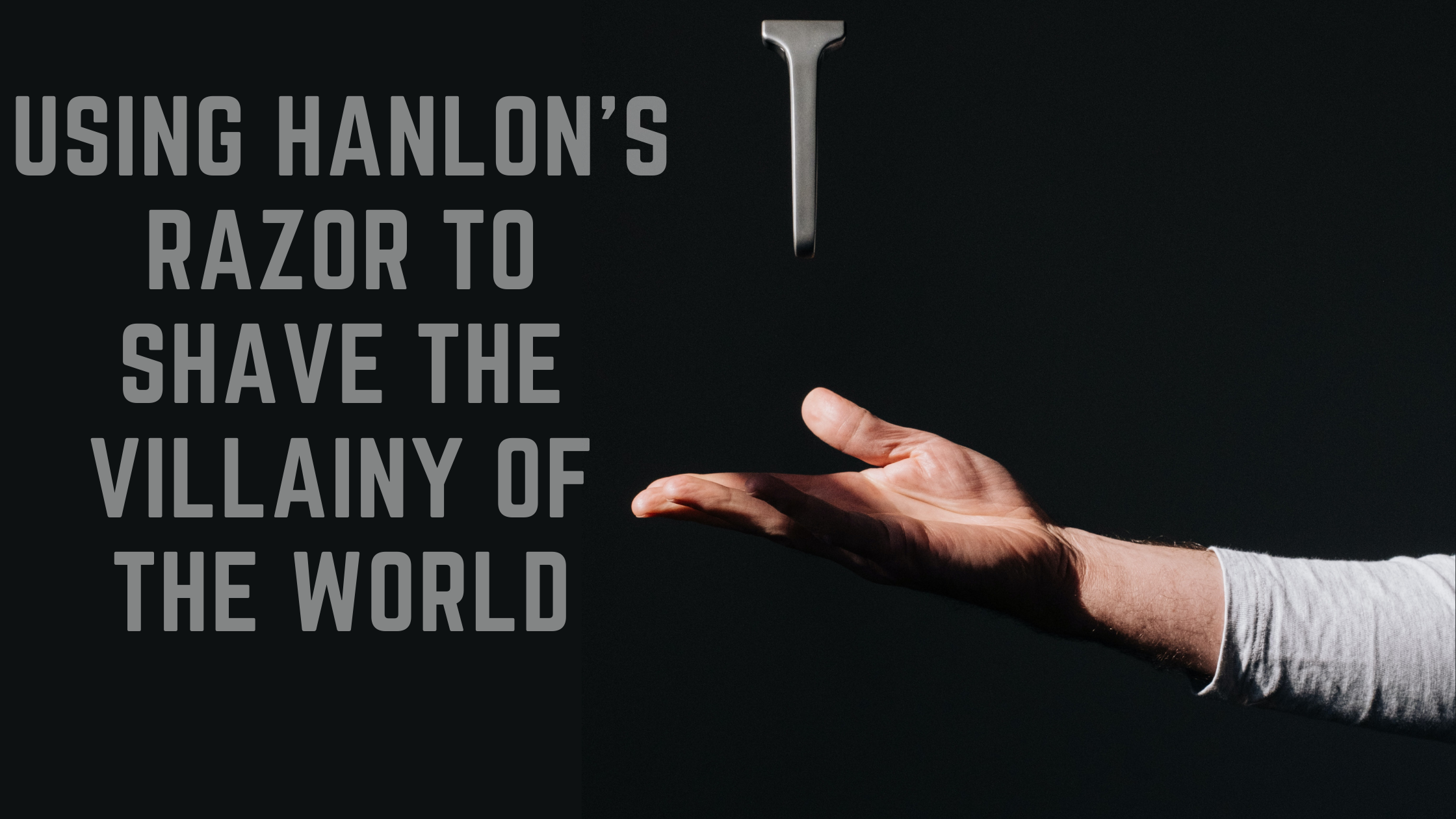Using Hanlon’s Razor to Shave the Villainy of the World

Hanlon’s Razor is about giving people the benefit of the doubt. Just like many other mental models, it is a tool to help us see past the bounds of our ego. We too often assume the actions of others have to do with us, as if our lives are the ruling factors in theirs.
Whether you do this consciously or unconsciously, believe me when I say this happens. Hanlon’s Razor can be summed up neatly like this,
“Never attribute to malice that which is adequately explained by carelessness.”
In other words, sometimes people mess up not because they are out to get you, but because they mess up. We are all human and part of being human means we can’t always be perfect. We forget things. We neglect things. And, we don’t always have the full picture.
Using Hanlon’s Razor
Let’s say you’re driving down the road and someone cuts you off. Your first reaction might be to get angry. “This person wants to run me off the road!”
How would this play out with Hanlon’s Razor? After they cut you off, you would hold back the anger and think more about the situation. What could have happened? Maybe they got distracted, they probably didn’t see you, or they might be a new driver. Then, you look up and see a “student driver” sign in the back window.
It’s always more likely that someone’s actions which inconvenience you are not caused by malicious intentions. To be blunt, you’re probably not important enough to them for this to be the case.
Many variations of Hanlon’s Razor extend beyond neglect. Here are some possible explanations…
- They are having a bad day
- They didn’t know how their actions would affect you
- Could be due to ignorance
- You might have misunderstood
- Maybe they’re tired
- Could be hunger or stress
Hanlon’s Razor reminds us to be patient and is an exercise in empathy. It will prevent us from making the wrong assumption about someone’s intentions and promote a deeper connection. It’s also an exercise in humility because we must acknowledge how minor a role we play in many people’s lives, and how limited our ability to “read minds” really is.
Are there exceptions?
Of course, there are exceptions. People do things with bad intentions all the time, but this shouldn’t be our first idea about why something happened.
Remember that any mental model isn’t going to be absolute, pointing you to the right answers 100% of the time. But they will tell you what is most likely. Here are some questions to ask yourself the next time you really suspect maliciousness.
- What could happen if I’m wrong about their intentions?
- How likely is it that something else caused their behavior?
- Have I tried correcting this person?
Use your best judgment to assess the context of the situation. Don’t jump to any conclusions and don’t let negative emotions get the best of you.
“I would say that you have fallen into the commonest fallacy of all in dealing with social and economic subjects. […] You have attributed conditions to villainy that simply result from stupidity.” – Heinlein
Keep It Simple
Like any philosophical razor, the point is to make things simpler. We add complexity to situations when we add assumptions. Occam’s Razor states when there are two competing theories which can accurately explain something, then the theory with the least assumptions is usually correct.
To say something was caused by malice requires the most assumptions. It implies some kind of grand conspiracy with plots to derail you. Negligence is far simpler, and because of this, far more likely.
Once you put this mental model into practice, you will be surprised at how many good people there really are in the world. A combination of mental shortcuts like confirmation bias, or bias from disliking/hating will distort our view of the world and our understanding of humanity.
If you already dislike someone and expect them to act maliciously, then “observing” malicious behavior should come as no surprise. Be careful not to project your expectations on the world because this will distort the reality.
A Mental Model for Faith in Humanity
This might sound dramatic, but it’s accurate. This might be the most important mental model you ever come across. When you give yourself the chance to see the best in people, then the best is what you will see.
Be patient, be reasonable, and use Hanlon’s Razor to shave away the villainy in the world.

Recent Comments